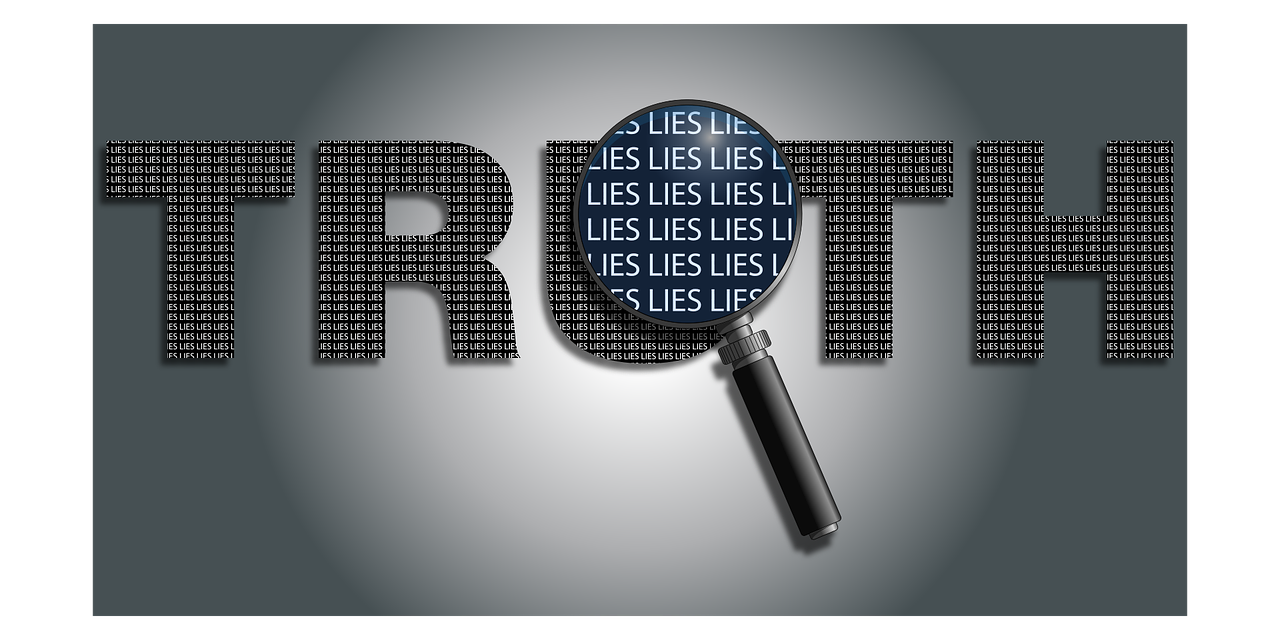The War on Objective Truth and the Rise of Authoritarian Propaganda
Introduction
In an age where misinformation and disinformation flow freely across social media and political platforms, the concept of objective truth—the idea that some facts are independent of personal beliefs or opinions—has come under relentless assault. Once a bedrock of public discourse and democracy, objective truth is increasingly being eroded by those who seek to replace it with subjective interpretations, often driven by personal or political agendas. This erosion is not an accident; it is a carefully orchestrated strategy, used by authoritarian figures throughout history to manipulate and control populations. Today, we see this same tactic being employed by figures like Vladimir Putin and Donald Trump, whose attacks on truth are part of a broader effort to gain and maintain power. In this blog, we’ll explore what objective truth is, why its destruction is essential for authoritarian regimes, and how we are seeing these strategies play out in modern politics.
What Is Objective Truth?
At its core, objective truth refers to facts that are universally accepted as reality, regardless of personal beliefs, biases, or emotions. These truths are based on verifiable evidence and are not subject to individual interpretation. For example:
- The Earth revolves around the Sun.
- Water freezes at 0°C (32°F).
- Human activity is driving climate change.
Objective truths form the foundation of rational debate, scientific inquiry, and policy-making. They provide a common ground on which societies can base decisions, ensuring that actions and policies are grounded in reality. When objective truth is respected, society functions with shared understanding, allowing for productive discourse, accountability, and justice.
The Assault on Objective Truth in Today’s Political Arena
Over the past few years, we have witnessed a concerted attack on objective truth, particularly in the political realm. Politicians, media figures, and online influencers spread misinformation with startling ease, eroding trust in institutions that traditionally serve as guardians of truth, such as the press, the scientific community, and educational systems.
In the United States, we saw a blatant example of this during the 2020 presidential election, when then-President Donald Trump repeatedly claimed that the election had been stolen, despite there being no credible evidence to support this claim. Trump’s continued assertion of “alternative facts,” even when confronted with overwhelming evidence to the contrary, is a textbook example of the rejection of objective truth for political gain.
Similarly, Vladimir Putin has long used disinformation as a political weapon, both domestically and internationally. By muddying the waters of truth and creating an atmosphere of confusion, authoritarian leaders can manipulate public perception, fostering a sense of helplessness and distrust in traditional sources of information.
Why Authoritarian Leaders Attack Objective Truth
The destruction of objective truth is not just an unfortunate byproduct of modern politics—it is a deliberate and essential strategy for those who seek authoritarian control. Here’s why:
1. Undermining Accountability
When there is no accepted standard of truth, it becomes nearly impossible to hold leaders accountable for their actions. If a politician can dispute facts and replace them with alternative narratives, the public becomes disoriented. Without a clear understanding of reality, citizens cannot effectively demand accountability from those in power. This tactic allows authoritarian leaders to operate with impunity, as they can rewrite history or deny wrongdoing without facing serious consequences.
Example: In Russia, Putin’s regime has repeatedly denied involvement in the poisoning of political opponents, despite strong evidence to the contrary. By rejecting objective truth, Putin creates confusion and prevents the public from holding him accountable for these actions.
2. Sowing Chaos and Confusion
Authoritarian leaders thrive in environments where people are uncertain about what is true. When truth is contested, citizens become more susceptible to manipulation. Leaders can offer simplistic explanations or comforting myths that appeal to emotional biases, effectively gaining control over public perception.
Example: Trump’s assertion that COVID-19 was a “hoax” or that it would “disappear” by itself is an example of sowing confusion. By downplaying the seriousness of the pandemic and rejecting scientific facts, he created an environment in which millions of Americans were unsure of the true severity of the virus, resulting in delayed action and unnecessary deaths.
3. Replacing Truth with Propaganda
Once objective truth has been sufficiently undermined, it can be replaced with propaganda that serves the authoritarian leader’s agenda. This propaganda often promotes a mythical narrative about the leader, framing them as the sole protector of the people or the savior of the nation. This mythology becomes a tool of control, reinforcing the leader’s power and demonizing their opponents.
Example: In Putin’s Russia, state-controlled media perpetuates a narrative that portrays Putin as a strong, infallible leader who is defending Russia from Western aggression. This narrative is designed to foster nationalism and consolidate Putin’s power, while casting opposition figures as foreign-backed traitors.
How Authoritarianism Thrives on the Destruction of Truth
The destruction of truth is a hallmark of authoritarian regimes. By rejecting objective facts and replacing them with a manufactured reality, these leaders can create a closed information system in which dissent is suppressed and loyalty to the leader is elevated above all else. This strategy is not new; it has been used by dictators throughout history, from Adolf Hitler’s Nazi propaganda machine to Joseph Stalin’s rewriting of Soviet history.
In today’s world, authoritarian leaders like Putin are actively working to help other like-minded figures, such as Trump, undermine truth in their own countries. Putin has long seen the value in destabilizing Western democracies by promoting misinformation and supporting populist, authoritarian leaders. By backing Trump, Putin was able to weaken the U.S. on the global stage while simultaneously encouraging the erosion of democratic norms at home.
The Role of Propaganda in Replacing Truth with Myth
Propaganda plays a crucial role in the authoritarian playbook. Once objective truth has been destroyed, leaders can fill the void with mythologies that support their agenda. These myths often paint the leader as a heroic figure who is uniquely capable of protecting the nation from enemies—whether they be internal dissidents or foreign powers. The public, starved for clarity in a chaotic information environment, is more likely to accept these narratives because they offer a sense of order and purpose.
Example of Authoritarian Mythmaking: Putin and Trump
In Russia, Vladimir Putin has created a mythology that positions him as the defender of Russian sovereignty, standing against a corrupt and decadent West. This mythology is echoed by state-controlled media, reinforcing the idea that opposition to Putin is unpatriotic or even treasonous. Similarly, Donald Trump has built a mythology around himself as the only leader who can “save” America from the forces of socialism, immigration, or the “deep state.” His rejection of objective truth allows him to control the narrative, making it easier to dismiss facts that undermine his position.
Why Defending Objective Truth Is Essential
The consequences of allowing objective truth to erode are profound. Without a shared understanding of facts, democracies cannot function. Citizens become polarized, unable to agree on the basic issues facing their society. Worse, without truth, authoritarian leaders can manipulate public opinion to serve their own ends, destroying democratic institutions in the process.
In a world where truth is constantly under attack, defending objective truth becomes an act of resistance. It requires a commitment to critical thinking, fact-checking, and holding leaders accountable. It also requires a rejection of simplistic, comforting myths that seek to replace reality with propaganda.
Conclusion
The assault on objective truth is a deliberate strategy used by authoritarian leaders to sow chaos, undermine accountability, and replace reality with propaganda. Figures like Vladimir Putin and Donald Trump understand that by dismantling truth, they can consolidate power and manipulate public perception. As citizens, we must recognize these tactics and defend the importance of objective truth, for without it, democracy cannot survive.
Call to Action
In a time when misinformation and disinformation are rampant, it is more important than ever to commit to seeking out the truth. Fact-check information, hold leaders accountable, and reject propaganda designed to confuse and divide. Democracy depends on a shared understanding of reality—without it, we leave ourselves vulnerable to authoritarian control.
Resources for More Depth
- The Atlantic – “The Death of Truth”
This article explores how the erosion of truth has become a central part of modern authoritarianism.
Link: https://www.theatlantic.com/ideas/archive/2020/01/the-death-of-truth/604461/ - Brookings Institution – “How Authoritarians Undermine Truth”
This piece examines the strategies used by authoritarian leaders to attack truth and replace it with state-driven narratives.
Link: https://www.brookings.edu/articles/how-authoritarians-undermine-truth/ - The Guardian – “Putin’s Disinformation Campaigns: A Threat to Democracy”
A deep dive into how Vladimir Putin uses disinformation to destabilize democracies and support authoritarian figures globally.
Link: https://www.theguardian.com/world/2021/jul/15/putins-disinformation-campaigns





